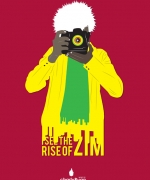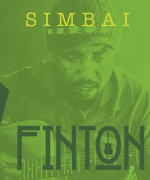The Exoticisation and Otherisation of the Afrikan by the Afrikan
In the last decade or so we have seen an increase in Afrikan visibility and participation in the marketing of the continent as a commercial and creative hub. We have embarked on re - branding the image of Afrika i.e. moving away from the traditional Afro-pessimistic narrative to a more positive vibrant one as well as reclaiming the marketing rights of our own continent and cultures. This paradigm shift has reaped benefits for more and more, mostly young, Afrikan designers, artists and entrepreneurs both on the continent and in the Afrikan diaspora.
It is a cause for celebration particularly in light of the reductive, Afro – pessimistic narratives that have plagued us for centuries and enabled the violent dispossession and subjugation of our people. However, I fear that while it has created room for Afrikans and our cultures in the global market as well as facilitated cultural exchange amongst ourselves as Afrikans on a much larger scale, I feel that this new visibility and celebration of our various cultures and the different aspects thereof has done very little to facilitate a shift from the exoticisation of the Afrikan and Afrikan culture.
If anything, it would appear to have not only validated it because that same narrative is now being vocalised by Afrikans “so it must be true”, but we now participate in the exoticisation of ourselves and our cultures.
I can personally think of many examples of this that I have either observed or encountered personally over the years both as a Zimbabwean immigrant living and working in Cape Town, South Afrika and as a Zimbabwean emigrant returning home every year for a visit. During my last visit to Zimbabwe I was called “exotic” by strangers for spotting natural/afro-textured hair and donning afro inspired clothing and accessories. I found this both very problematic and somewhat offensive at the same time even though on all three occasions it was intended to be a compliment.
The term “exotic” does not sit well with me, particularly when it is said in reference to people (of colour) or to POC cultures and heritages and this is because of the historical baggage that comes along with that term. Historically, and even in the present day, the term exotic mostly serves the purpose of propping up and sanctioning the otherisation of the “exotic” subject so as to fetishise and objectify them/it making them/it inferior to what is considered the “norm”. This thinking operates on the premise that there is a singular norm and anything that deviates from this alleged norm then automatically becomes unusual and abnormal.
The Oxford Companion to Women’s Writing in the US defines exoticisation as:
…a process by which a human figure is cast as foreign, not in the concrete sense of belonging to a foreign country or ethnic group, but in the phenomenological and ethical sense of being “other.” The other is considered an object of interest and contemplation for the viewing subject, who presumably represents a cultural norm. The hallmark of exoticization in European and American literature is the construction of the other as strange and mysterious—often in some desirable or attractive but nevertheless distanced way—as if she did not exist within a plausible cultural or psychological context.
What I take issue with when I’m referred to as exotic, particularly by fellow Afrikans and more especially by fellow Zimbabweans is that the things that aren’t foreign about me BECAUSE I’m a brown/black Zimbabwean or Afrikan are the exact things that my viewer considers exotic and distances themselves from; things such as not relaxing my hair or not wearing a weave or even not identifying as a Christian but instead as an Afro – spiritualist. This of course speaks to the politics of decolonisation and betrays to what extent we are really a nation (and perhaps even a continent) of Anglophiles whose idea of normal is really Euro-centric and it is often through this Anglophile/ Euro-centric lens that we engage with our cultures or identities and wind up falling into the trap of commodifying them as opposed to promoting them.
The commodification and exoticisation of ourselves, our cultures and our identities also seems to entrench the socio economic and political issues that already plague our communities. It appears to disenfranchise certain communities (particularly the rural ones) who by the way are usually the ones who preserve, live and identify with these cultural aspects more than those who wind up profiting from commodifying and commercialising said cultures. We end up replacing the current perpetrators of the exploitation of our people and our cultures. Also it is very problematic how we seem to be only embracing our cultures because we feel that there is business to be made from them for as long as the west is still enamoured by the idea of the exotic other.
The exoticisation of Afrikans is nothing new and we have seen this in stories like the Allan Quartermain series and various other aspects of pop culture that romanticise and fetishise the idea of Afrika as an endless majestic wilderness filled with adventure and “primitive but mysterious and alluring jungle people”. It is this sort of exoticisation that we seem to have internalised and adapted somewhat. Since the emergence of Afropolitanism, which has come under much justifiable criticism we have seen more and more young Afrikans appearing to be engaging with both their own as well as other Afrikan cultures. I say appearing because of late I have wondered to what extent most of us actually engage, if at all, with the plethora of Afrikan cultures we are enthusiastically commodifying and consuming.
I started to question this when I noticed that in conversations with fellow young people, be it in South Afrika or Zimbabwe, around “afro-print” couture for example, most people treated the plethora of prints being used in the fashion industry as though they all emerge from a homogenous culture, called “Afrikan”. Not many bother to learn more about the origins of the prints they were using or buying and what, if any, significance or meaning they hold to the bearers of that particular culture. Because we use whiteness as the standard or default for normal, modern, urban, progressive, sophisticated etc we appear to be more interested in engaging with our identities using Euro-centric rules and norms i.e. moving away from the roots of said identities while maintaining the things that have received the West’s endorsement and approval and that can fit seamlessly into the neoliberal capitalist imaging of the world at the expense of the sacred aspects of our identities. What appears to be a celebration and promotion of Afrikan identities is in most instances a celebration and promotion of Western identities and norms just with an Afrikan twist to it.
It is true that doors have been opened up and conversations started about our Afrikan cultures with business opportunities being provided for our Afrikan designers but to what extent are the designers engaging with the cultures they are “marketing” in order to be considered representatives of said cultures? Is a Kente inspired printed fabric the same as a Capulana print one and therefore can be used interchangeably? Are the symbols in these prints just meaningless pretty squiggles and designs on a piece of cloth or do they represent something? To what extent are the rest of the beneficiaries of those cultures being included in this distribution of their identity? Is the appropriate respect being awarded to the sacred aspects of the things we are marketing? Is commodifying Afrikan cultures creating multiple and nuanced narratives or just creating an illusion of representation and adding an Afrikan voice to the already existing reductive narrative of the “exotic other”? In my opinion these are all pertinent questions that elicit the necessary conversations that I believe we should be having as young Afrikans.
That we are not is indeed problematic or has the potential to be. Don’t get me wrong, I am not entirely against the marketing of our cultures ourselves as I am for the idea of (re)discovering, (re)claiming, and (re)framing/branding our identity first as black Afrikans then as members of various ethnic and cultural groups that fall under that banner (of Afrikan) that is removed from the imposed monolithic common identity that is “human” which is usually understood as a synonym for Europhile but I believe that we need to stop viewing and identifying ourselves using a Westernised/ white gaze.
Others may wonder if it is still necessary to be talking about such things and if these things still matter but for as long as we and the rest of the world determine our value by our ability to produce Afrikan flavoured versions of Western convention and form because we are “inferior” we still have lot of talking, learning and unlearning to do. Of course, there will always be the risk of opening ourselves up to continued exoticisation by others through this promotion and celebration of ourselves and our cultures, that is unavoidable, but at least we can aim to dismantle the ever reductionist narrative somewhat and more importantly we can cease to legitimise and reinforce the problematic racialised inferiority imposed on us by Euro-centric supremacy.



